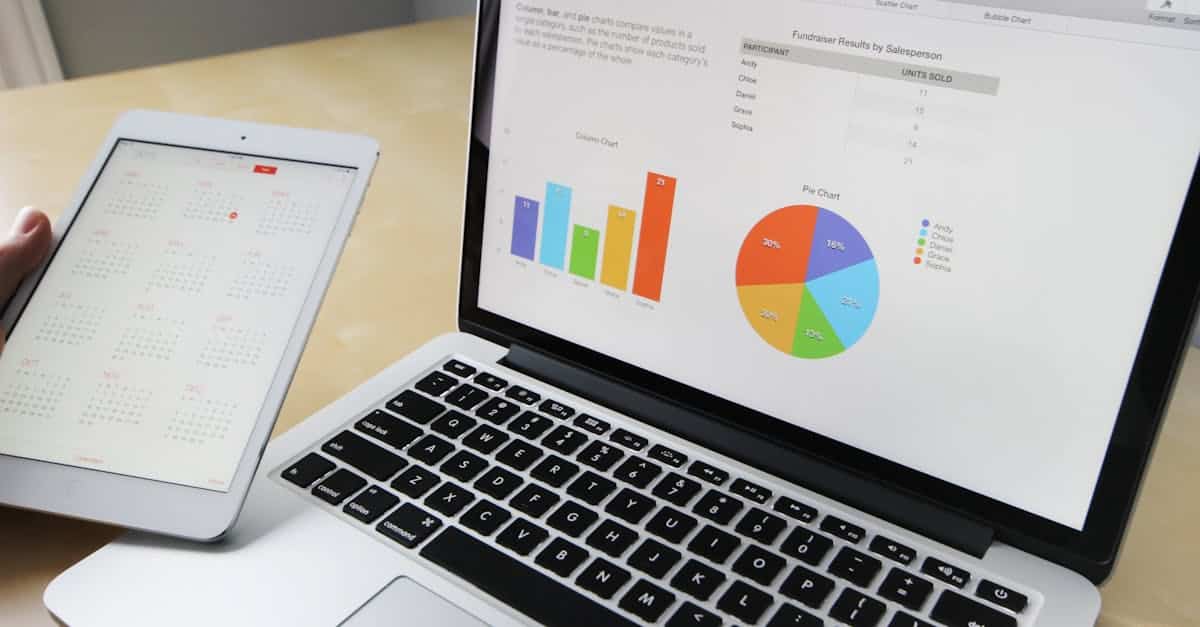Artificial intelligence is revolutionizing the business world. B2B companies are quickly adapting to this new era. Not integrating AI means falling behind.
With Skillco, discover training and custom solutions for effective automation. Leverage in-depth data analysis and enhance your customer experience. Propel your business to new heights with dedicated expertise. Together, let’s build an innovative and high-performing future.

Optimizing work processes in B2B teams requires a deep understanding of interpersonal dynamics. The MBTI (Myers-Briggs Type Indicator) is a valuable tool that helps identify the personality preferences of each team member. By recognizing different personality types, leaders can adapt their management strategies to better meet individual and collective needs.
The use of the MBTI promotes more effective communication within B2B teams. By understanding the strengths and weaknesses of each personality type, team members can better coordinate, avoid misunderstandings, and strengthen collaboration. This leads to a more balanced distribution of tasks, where everyone can excel in their area of expertise.
By integrating the MBTI into work processes, B2B companies benefit from a significant improvement in productivity and employee satisfaction. Better-aligned teams are more resilient to challenges and more capable of innovation. Thus, process optimization through the MBTI translates into increased performance and enhanced competitiveness in the market.

In the dynamic world of B2B companies, optimizing work processes is essential to maintain enhanced competitiveness. One innovative approach to achieve this goal is the use of the MBTI (Myers-Briggs Type Indicator). This personality psychology tool provides a better understanding of various work styles within teams, thereby facilitating smoother and more effective collaboration. By integrating the MBTI into team management, companies can not only improve internal communication but also increase productivity and employee satisfaction. This method offers a unique perspective to identify each member’s strengths and weaknesses, allowing for optimal task allocation and quicker conflict resolution. Let’s discover how the MBTI can transform work processes in B2B teams.
Understanding the MBTI and its fundamentals
The MBTI is a personal development tool that identifies 16 personality types based on four main dimensions: extraversion vs. introversion, sensing vs. intuition, thinking vs. feeling, and judging vs. perceiving. This in-depth understanding of different personality types allows leaders to manage their teams more effectively by considering everyone’s different preferences and behaviors. For example, a person with a preference for extraversion might excel in roles requiring constant interaction with clients, while an introverted individual might be more effective in analytical tasks requiring deep concentration. By applying the MBTI, managers can create work environments that respect and value personality diversity, thus fostering smoother and more productive collaboration. To learn more about the different personality styles, check out our article on learning styles and the MBTI.
Improving communication within teams
Effective communication is the cornerstone of any high-performing team. By utilizing the MBTI, B2B companies can identify each team member’s communication preferences, facilitating clearer exchanges and fewer misunderstandings. For instance, thinking-oriented (T) individuals prefer factual and logical communications, while feeling-oriented (F) individuals value a more empathetic and personal approach. By adapting communication styles according to personality types, managers can ensure that messages are received and understood optimally. Additionally, this approach fosters a climate of trust and mutual respect, essential for team cohesion. Studies show that teams that communicate effectively are 25% more productive than those that do not. To deepen your understanding of leadership styles, explore our article on leadership styles and the MBTI.
Optimizing task allocation
Effective task allocation is crucial for maximizing the productivity of B2B teams. The MBTI allows managers to understand each member’s strengths and preferences, facilitating a more strategic task allocation. For example, intuitive (N) types often excel at strategic planning and innovation, while sensing (S) types shine in tasks requiring attention to detail and precise execution. By aligning tasks with employees’ natural skills, companies can not only improve the quality of work performed but also reduce stress and increase job satisfaction. Furthermore, this approach promotes professional development by allowing employees to work on projects that match their interests and skills. To discover the best books on the MBTI for beginners, check out our recommended book selection.
Strengthening team cohesion
Team cohesion is essential for achieving common goals in a B2B environment. The MBTI helps identify individual differences and use these diversities as assets rather than sources of conflict. By understanding personality types, teams can better appreciate each member’s unique perspectives and approaches, thus fostering an inclusive and collaborative work environment. For example, a team composed of Extraverted (E) and Introverted (I) members can balance collective energy with moments of individual reflection, creating a harmonious balance between action and analysis. MBTI personality type-based team-building activities can also strengthen bonds and improve group dynamics. A harmonious and respectful work environment contributes not only to better performance but also to higher talent retention. To learn more about applying the MBTI in the professional world, visit our dedicated page on MBTI in business.
Facilitating conflict resolution
Conflicts within teams are inevitable, but effective management can transform challenges into opportunities for growth. The MBTI offers a structured approach to understanding the sources of disagreement and finding suitable solutions. By identifying the personality types involved in a conflict, managers can adopt specific mediation strategies that respect everyone’s preferences. For example, Thinking (T) types may prefer direct and factual discussions, while Feeling (F) types favor more empathetic and emotional approaches. This understanding allows for de-escalating tensions and promoting constructive resolutions. Furthermore, by implementing assertive and respectful communication practices based on the MBTI, teams can prevent the escalation of conflicts and maintain a positive work climate. Effective conflict management strengthens trust and collaboration within the team, leading to overall improved performance.
Encouraging personal and professional development
Continuous skill development is a key element of success in B2B teams. The MBTI can serve as a guide to personalize professional development pathways according to individual needs and aspirations. By understanding personality types, managers can offer training and mentoring opportunities that correspond to each employee’s strengths and areas for improvement. For example, an individual with a preference for Perception (P) might benefit from time management and organizational training, while a Judging (J) type could focus on enhancing creativity and flexibility. This personalized approach not only improves individual skills but also strengthens the collective performance of the team. By investing in personal development through the MBTI, companies can create a culture of continuous growth and performance, essential for staying competitive in the B2B sector.
Improving employee satisfaction and retention
A satisfied team is a productive and engaged team. The MBTI plays a crucial role in improving employee satisfaction by enabling managers to create work environments aligned with individual preferences and needs. By recognizing and valuing different personality types, companies can offer more flexible and tailored working conditions, which helps reduce stress and increase job satisfaction. For example, employees who prefer to work independently may be offered quiet workspaces and flexible hours, while those who enjoy collaboration can benefit from group projects and regular meetings. Moreover, a work environment that respects different personality types fosters better talent retention, thereby reducing turnover costs. Ultimately, investing in employee satisfaction through the MBTI leads to a more engaged, loyal, and high-performing team.
Integrating the MBTI into process management tools
To maximize the benefits of the MBTI in optimizing work processes, it is essential to integrate this tool into existing management systems. This can include using project management software that allows for visualizing team members’ personality types and adjusting assignments accordingly. For instance, platforms like Transform Executive Coaching can provide tailored features for tracking and analyzing interactions based on the MBTI. Additionally, integrating the MBTI into performance evaluations allows for more targeted and constructive feedback aligned with individual preferences. By automating certain aspects of process management using the MBTI, companies can improve operational efficiency and create smoother workflows that suit team dynamics. This technological integration also facilitates the continuous implementation of MBTI-based strategies, ensuring sustainable optimization of work processes.
Measuring the impact of the MBTI on team performance
To evaluate the effectiveness of integrating the MBTI into work processes, it is crucial to establish specific key performance indicators (KPIs). These KPIs may include measures such as productivity improvement, reduction of internal conflicts, employee satisfaction, and talent retention. By regularly collecting and analyzing this data, companies can determine the extent to which the MBTI contributes to optimizing work processes. For example, a 15% increase in productivity after implementing MBTI-based strategies may indicate a significant positive impact. Moreover, internal satisfaction surveys can provide valuable insights into employees’ feelings regarding the changes made. By continuously adjusting practices based on the results obtained, companies can refine their use of the MBTI to maximize benefits and achieve their performance objectives. Regular evaluation also ensures that the integration of the MBTI remains aligned with team developments and business needs.

“`html
FAQ
Q : What is the MBTI and how can it help B2B teams optimize their work processes?
A : The MBTI (Myers-Briggs Type Indicator) is a personality tool that identifies individual preferences in terms of perception and judgment. By understanding the different personality types within a B2B team, it is possible to better allocate roles, improve communication, and strengthen collaboration, leading to the optimization of work processes.
Q : How to integrate the MBTI into project management processes within B2B teams?
A : Integrating the MBTI into project management means identifying each team member’s strengths and preferences. By assigning tasks based on personality types, effectiveness and employee satisfaction are maximized. Additionally, this enables anticipating and resolving potential conflicts through improved mutual understanding.
Q : What are the specific benefits of using the MBTI for communication within B2B teams?
A : The MBTI promotes clearer and more effective communication by helping everyone understand their own communication style as well as that of others. This reduces misunderstandings, improves collaboration, and strengthens team cohesion, which is essential for achieving B2B objectives.
Q : Can the MBTI be used to improve conflict resolution in B2B teams?
A : Yes, the MBTI allows for identifying potential sources of conflict related to personality differences. By understanding everyone’s preferences, teams can adopt adapted resolution strategies, thus fostering a harmonious and productive work environment.
Q : What are the challenges associated with using the MBTI in B2B teams and how to overcome them?
A : The main challenges include resistance to change, limited understanding of personality types, and misinterpretation of results. To overcome these, it is essential to train teams, encourage a culture of respect, and use MBTI results constructively and non-discriminatorily.
Q : How to measure the impact of the MBTI on the effectiveness of work processes in a B2B team?
A : The impact of the MBTI can be measured by evaluating key indicators such as productivity improvement, conflict reduction, increased employee satisfaction, and more effective achievement of project objectives. Regular surveys and feedback allow tracking these progress and adjusting strategies accordingly.
Q : Is the MBTI suitable for all sizes of B2B companies to optimize work processes?
A : Yes, the MBTI is adaptable to different sizes of B2B companies. Whether for small teams or large organizations, the MBTI can be used to improve mutual understanding, optimize task allocation, and strengthen collaboration, thus contributing to the overall efficiency of work processes.












